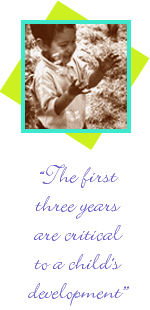|
The following guest
column was written for First Signs by Mitzi Waltz,
©2001. Mitzi is the author of
several Patient Centered Guides that provide comprehensive coverage
on a variety of developmental and behavioral disorders, including
Autism Spectrum Disorders: Understanding the Diagnosis and Getting
Help.
I still hear from parents whose first introduction to autism
information after their child's diagnosis was Bruno Bettelheim’s
The Empty Fortress. Published in 1967, it has had an amazingly
long life on library shelves, still frightening and shaming
families of autistic children decades after the material in it
was discredited.
If your family is coping with a child’s disability, there are
books that can be helpful, and books that can hurt. The best can
help you make good decisions about your child’s medical care and
schooling, and offer you new ideas about parenting techniques
that can make living with your child easier.
Bookshelf basics.
There are a few books that every parent of a child with a
developmental delay should have on hand. They include:
A childhood reference book that discusses typical development
and answers universal questions, such as the venerable Dr.
Spock’s
Baby and Child Care (Pocket Books) or Penelope Leach’s
Your Baby and Child (Knopf)
A medical dictionary, such as
The Signet Mosby Medical
Encyclopedia or
Webster’s New World Medical Dictionary
If your child takes medication, a basic drug reference book,
such as
The Pill Book (Bantam) or
Straight Talk About
Psychiatric Medications for Kids (Guilford Press)
A general book about early intervention and special education,
such as
Negotiating the Special Education Maze: A Guide for
Parents and Teachers (Woodbine House)
Many of these come in inexpensive paperback editions, or can be
found at used book stores.
Disability-specific information.
Beyond that, there are many books and online resources about
autism and related disabilities. When choosing between them, let
what you know about your child as a unique person be your guide.
No author or expert understands your child as well as you do.
Autism is a spectrum disorder, and children on that spectrum can
be very different from each other. No program of therapy,
education, or medical care is right for every child. Sadly, even
a few current books by authors who should know better offer no
or very little hope. Any book, program, or Web site that takes
this view is out of date. The tyranny of low expectations used
to put children with autism on a road that led directly to a
lifetime of residential care. Little was known about the
condition, there were no medical options, and it was believed to
be incurable. If you encounter this view today, just walk away.
Some sources encourage parents to set their expectations low for
any child who has mental retardation, with or without autism.
Experienced clinicians know it’s true that children with low IQs
can be harder to work with, but they also know this may have
more to do with the limitations of current treatments than the
child’s “built-in” limits. It is also very difficult to obtain
an accurate IQ score for a child who has problems with speech,
attention, or the kinds of physical tasks included in
intelligence tests for young children. There may not be a normal
child inside struggling to get out, as some writers would have
it, but that doesn¹t mean the child should not have access to
medical care, therapies, or teaching methods that might help.
Indeed, these children need more help, not less.
Conversely, if a book, program, or Web site promises a cure for
your child’s condition, be wary. You can expect improvement from
appropriate early intervention, and sometimes it is dramatic
improvement, but no one has found a cure for autism or
developmental delay yet. In at least some cases, intervention
strategies may help your child to eventually be
indistinguishable from “normal” children his or her age. He or
she may still have some challenges (hyperactivity,
obsessive-compulsive traits, speech difficulties, that sort of
thing) but with luck and hard work, they may not keep your child
from completing school and pursuing his or her interests as an
adult. In the absence of a cure, this is the goal to aim for.
Pseudoscience-busters.
Sometimes it’s hard to tell whether you should believe what you
read. Beyond the “if it sounds too good to be true, it probably
is” rule, your medical dictionary and basic reference books can
help you evaluate printed claims. These can come in handy when
books or articles use a lot of scientific jargon, and they can
also help you gauge the validity of advertisements and the like.
Some writers use ten-dollar words out of habit, or to sound more
impressive. Occasionally they are used to pull the wool over
your eyes. For example, one supplement company that sells its
wares online and through multi-level marketing schemes says its
product “supports cellular communication through a dietary
supplement of monosaccharides needed for glycoconjugate
synthesis.” With a little help from your medical dictionary, you
can decode this to find out that “monosaccharides” are merely
simple sugars, and “glycoconjugate synthesis” is the everyday
process of turning sugar into energy. In other words, the
product is a sugar pill (and a very expensive one at that).
Becoming an informed consumer is one of the smartest things you
can do. It can save you headaches and heartache, and help you
communicate more clearly with the professionals in your child’s
life.
© First Signs, Inc., June 2001
---------------------------------------------------
Mitzi Waltz € http://www.mitziwaltz.com/
Back to top | 



